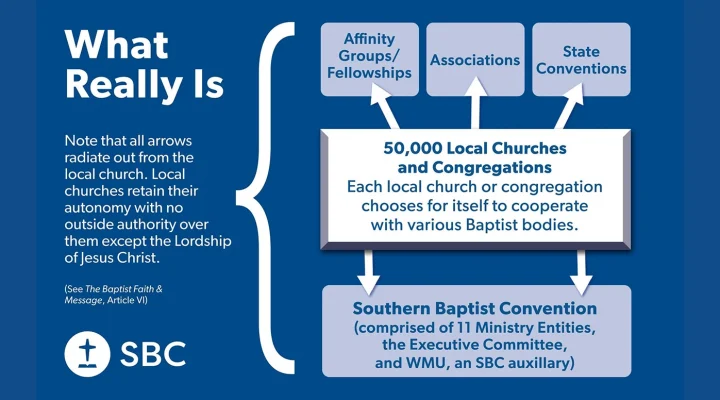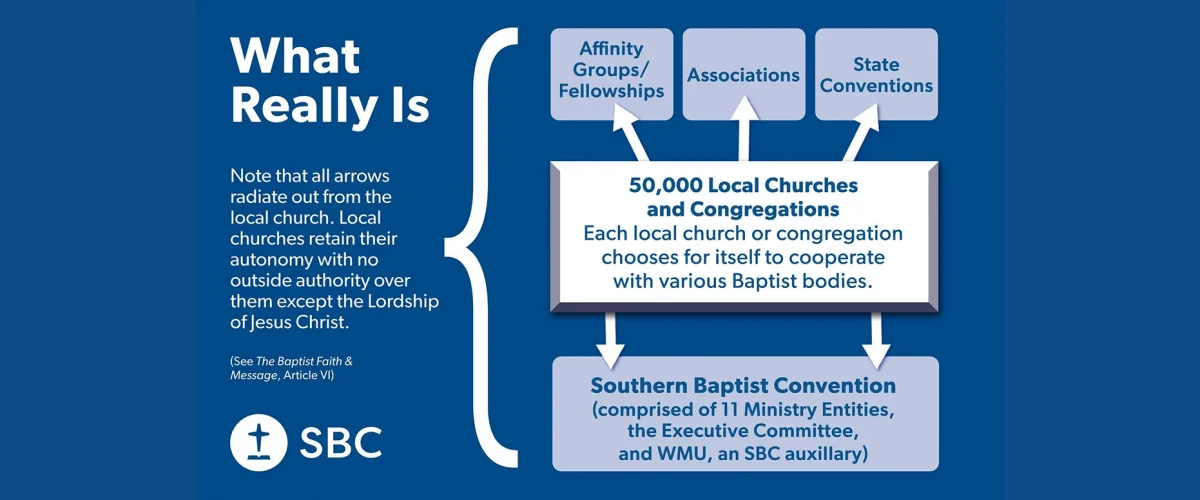Unless challenged, one judge’s ruling could have profound implications for Baptist autonomy, according to Will McRaney, whose defamation suit against the Southern Baptist Convention’s North American Mission Board was dismissed Aug. 15.
“The judge’s ruling is built around the erroneous concept of ‘THE’ Baptist Church as a denomination like the Catholic or Methodist Church,” McRaney said in a statement to Baptist News Global late Aug. 16. “However, the First Amendment clearly declares that the government cannot create or establish a religion.

Will McRaney
“Unless this court’s ruling is challenged, the SBC, Baptist ministers, along with Baptist autonomy, cooperation, financial health and missionaries will be under threat of loss and a form of hierarchy created,” he said.
At issue in the federal district court ruling to dismiss the case was a legal doctrine called ecclesial exemption. Drawn from the First Amendment, this legal precedent says secular courts may not interfere in the inner workings of a church.
McRaney contends his claim supersedes the confines of a “church” as Baptists understand it. Because of the Baptist doctrine of autonomy — every church and every level of denominational hierarchy is autonomous — his firing by the Baptist Convention of Maryland and Delaware in 2016 at the alleged demand of the SBC North American Mission Board is not truly a matter of the inner workings of a “church.”
In Baptist polity, a national entity like NAMB should exercise no control over a state entity like the BCMD.
In Baptist polity, a national entity like NAMB should exercise no control over a state entity like the BCMD — and vice versa. Each is autonomous. Therefore, if the president of NAMB exerted pressure on the Executive Board of the BCMD to remove McRaney — as he alleges — that falls outside the inner workings of a single church.
However, U.S. District Judge Glen Davidson ruled there is no way for him or any secular court to adjudicate McRaney’s claim without delving into the motives of the BCMD and NAMB. What motivated their actions could be religious beliefs, and that examination is off-limits due to the First Amendment, the judge reasoned.
The question has implications in a variety of other legal settings. For example, SBC officials have claimed a firewall between them and local churches when sexual abuse cases arise. In Baptist life, they say, the national denomination has no control over what happens in local congregations. Therefore, the SBC cannot be held liable because of the autonomous nature of Baptist churches.
What differentiates McRaney’s case is his allegation that two autonomous Baptist entities collaborated to defame him, one facing undue influence from the other in the form of money.
If that can happen to him, he says, it can happen to many others as well.

John Batts
That sentiment is shared by John Batts IV, pastor of First Baptist Church of Clear Lake, Wash., and a current member of the SBC Executive Committee.
He posted a lengthy response to the McRaney ruling on a Facebook group for debating SBC issues.
“This decision by the district court judge is a complete travesty.”
“This decision by the district court judge is a complete travesty. Of the legal system. Of the Constitution. And potentially of SBC polity and life, if the decision is allowed to stand,” he wrote.
“Asserting that Dr. McRaney held a church position and that the courts have no right to step into ecclesiastical issues such as this because of his position — asserting that Dr. McRaney ‘clearly served in a ministerial role and in which he had a primary role in conveying the Baptist Church’s message and carrying out its religious mission,’ is a clear misunderstanding of how the SBC is structured and how it functions.”
He added: “What was asserted by this judge — and celebrated by NAMB — is that Dr. McRaney’s role in the state convention was tantamount to being employed by a Baptist Church… AND that somehow NAMB has the authority to dictate to the state convention who they employ based upon the ‘strategic agreement partnership between NAMB and the BCMD’ which ‘weighed heavily in (the judge’s) decision.’”
There’s even precedent against the judge’s reasoning in recent actions taken by messengers to SBC annual meetings, Batts said. He cited a case in which messengers rebuked an effort by the Executive Committee to force budgetary compliance on another entity.
“Southern Baptists should be abhorred by this decision and should publicly demand the SBC leadership at each entity level offer a strenuous rebuke of the language used by the judge — while also clarifying how we are truly structured,” Batts said.
Aside from problems of ascending liability, the concept promoted by the judge “violates the First Amendment by using a summary ruling to, in essence, establish a new ‘religion’ — one that is called Southern Baptist but one that is structured completely differently from the very documents that currently describe the structure and function of the SBC.”
For now, McRaney said he and his wife, Sandy, are praying about what to do next, McRaney said. “We have 30 days to decide to appeal the ruling to the 5th Circuit. The litigating cost and risks to Baptists are high, but the cost to Baptists by doing nothing will be higher. We covet your prayers.”
Related article:
U.S. district judge dismisses McRaney’s case against NAMB


